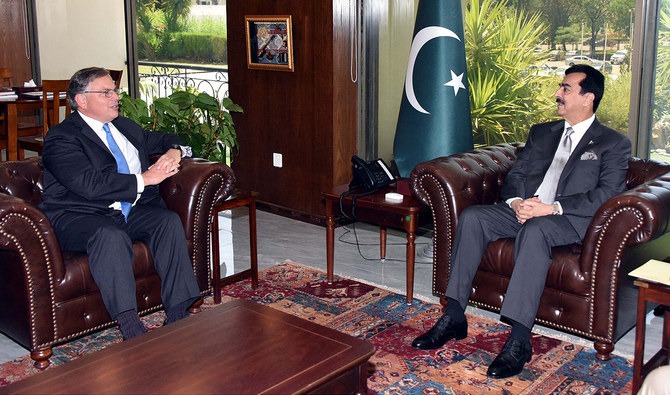Sam Altman has expressed concerns about the technology behind his company’s most famous product, believing that it could pose a threat to human civilization. In May, as the CEO of OpenAI, he appeared before a Senate subcommittee in Washington, D.C., urging lawmakers to establish thoughtful regulations that harness the tremendous potential of artificial intelligence while safeguarding against the risk of it becoming a threat to humanity. This marked a pivotal moment for both him and the future of AI.
With the introduction of OpenAI’s ChatGPT in late last year, Altman, aged 38, swiftly became the face of a new generation of AI tools capable of generating images and text in response to user prompts, known as generative AI. Shortly after its release, ChatGPT gained widespread recognition and became almost synonymous with AI itself. CEOs used it for drafting emails, individuals created websites without prior coding knowledge, and it even successfully completed exams from law and business schools. This technology has the potential to transform numerous industries, including education, finance, agriculture, healthcare, and more, impacting everything from surgeries to vaccine development in medicine.
However, these very tools have sparked concerns spanning a wide range of issues, including academic cheating, the displacement of human workers, and even existential threats to humanity. The rapid advancement of AI has prompted economists to sound the alarm about a significant shift in the job market. According to estimates from Goldman Sachs, as many as 300 million full-time jobs worldwide could eventually be subject to automation through generative AI in some capacity. The World Economic Forum’s April report indicates that approximately 14 million positions could vanish within the next five years alone.
During his testimony before Congress, Altman highlighted his greatest concerns, emphasizing the potential for AI to manipulate voters and facilitate the spread of disinformation.
Two weeks following his testimony, Altman joined forces with hundreds of leading AI scientists, researchers, and business leaders in signing a concise statement: “Mitigating the risk of AI-induced extinction should be a global priority, on par with other risks of a societal scale, such as pandemics and nuclear war.”
Kevin Bacon of Silicon Valley
On that day, while testifying in front of the Senate subcommittee, Altman characterized the current surge in AI technology as a pivotal moment in history.
He asked, “Is AI going to be similar to the printing press, which disseminated knowledge, power, and learning broadly across society, empowering everyday individuals and leading to greater prosperity and, above all, increased freedom?” He continued, “Or is it more likely to resemble the atom bomb – a significant technological breakthrough with severe and lasting consequences that continue to haunt us?”
Altman has consistently presented himself as someone who is acutely aware of the risks associated with AI and has made commitments to move forward with a strong sense of responsibility. He is among several tech CEOs who have engaged with White House leaders, including Vice President Kamala Harris and President Joe Biden, to stress the importance of ethical and responsible AI development.
While some advocate for more cautious progress, there are notable figures like Elon Musk, a co-founder of OpenAI (before parting ways with the organization), along with numerous tech leaders, professors, and researchers, who have called on artificial intelligence labs such as OpenAI to halt the training of the most powerful AI systems for at least six months, citing “profound risks to society and humanity.” However, it’s worth noting that some experts have raised questions about whether those who signed the letter had competitive motivations in mind.
Altman expressed agreement with certain aspects of the letter, particularly the need to raise safety standards. However, he argued that a pause in AI development would not be the most effective way to address the challenges.
Nonetheless, OpenAI continues to push forward aggressively. Most recently, there have been reports of OpenAI and iPhone designer Jony Ive exploring a potential $1 billion investment from Japanese conglomerate SoftBank for the development of an AI device intended to replace the smartphone.
Those who are familiar with Altman have praised his ability to make forward-thinking and prescient decisions, often referring to him as a “startup Yoda” or the “Kevin Bacon of Silicon Valley” due to his extensive connections within the industry. Aaron Levie, the CEO of enterprise cloud company Box and a close friend of Altman who has been part of the startup world with him, shared that Altman is introspective and values engaging in discussions about ideas. He actively seeks different perspectives and is open to receiving feedback on any project he’s involved in.
Levie noted, “I’ve always found him to be incredibly self-critical regarding ideas and willing to accept any kind of feedback on any topic that he’s been involved with over the years.”
Bern Elliot, an analyst at Gartner Research, brought attention to a well-known cliché, emphasizing the potential risks associated with putting all your trust and resources into a single entity. As he put it, “Many things can happen to one basket,” implying that diversification and contingency planning are often prudent approaches to mitigate potential risks and vulnerabilities.
Challenges ahead
When Sam Altman co-founded OpenAI, he made it clear that his intention was to shape the direction of AI rather than merely worrying about its potential negative consequences and taking no action. In a 2015 interview with CNN, he expressed that he found comfort in having some influence in the field, stating, “I sleep better knowing I can have some influence now.”
Despite his leadership role in AI, Altman has maintained a degree of concern about the technology. In a 2016 profile in the New Yorker, he mentioned preparing for potential survival scenarios, including the possibility of AI turning against humanity. He stated that he had taken precautions, such as acquiring guns, gold, potassium iodide, antibiotics, batteries, water, and gas masks from the Israeli Defense Force, as well as having a significant piece of land in Big Sur to which he could retreat if necessary.
Indeed, some experts in the AI industry argue that fixating on distant apocalyptic scenarios could divert attention from the more pressing issues that a new generation of powerful AI tools can pose to individuals and communities. Rowan Curan, an analyst at market research firm Forrester, recognizes the valid concerns regarding the need to ensure that training data, especially for massive AI models, is as unbiased as possible, or that any existing bias is well-understood and can be effectively addressed. Addressing these immediate issues, such as bias in AI, is crucial to ensure that AI technology benefits society while minimizing its potential harms.
The notion of an ‘AI apocalypse’ as a plausible scenario that poses any real threat to humanity, especially in the short and medium term, is merely a speculative techno-myth, according to the expert. He added that the persistent focus on this idea as one of the major risks associated with AI advancement distracts us from the immediate and genuine challenges we face today, which involve reducing present and future harms caused by the unjust application of data and models by human actors.
In what may be one of the most comprehensive initiatives to date, President Biden recently introduced an executive order that mandates developers of powerful AI systems to share the results of their safety tests with the federal government before releasing them to the public if these systems carry national security, economic, or health risks.
Following the Senate hearing, Emily Bender, a professor at the University of Washington and director of its Computational Linguistics Laboratory, expressed reservations about what the future holds in a heavily regulated AI landscape. She questioned, “If they genuinely believe that this could lead to human extinction, then why not just cease development altogether?”
Margaret O’Mara, a tech historian and professor at the University of Washington, emphasizes that effective policymaking should be based on a broad range of perspectives and interests, rather than being driven solely by a small group of individuals or entities. Policymaking should also be guided by the public interest.
She points out that a significant challenge with AI is that only a very limited number of people and organizations truly comprehend how it functions and what the consequences of its usage might be. She draws parallels to the realm of nuclear physics before and during the Manhattan Project’s development of the atomic bomb, where a select few possessed an in-depth understanding of the technology and its implications.
Many individuals within the tech industry are optimistic about Sam Altman’s potential to lead a revolution in society with AI while ensuring its safety, according to O’Mara. She likens this moment to what figures like Gates and Jobs did for personal computing in the early 1980s and for software in the 1990s. There is a genuine hope that technology can bring about positive change, provided that the people behind it are ethical, intelligent, and prioritize the right values. In the context of AI, many see Sam Altman as embodying these qualities.
Nevertheless, it’s important to recognize that despite his intelligence and qualifications, Altman is still just one individual. The world is relying on him to act in the best interests of humanity with a technology that he himself acknowledges could have the potential to be a weapon of mass destruction. The responsibility is immense, and it underscores the need for collective efforts and vigilance in AI development and regulation.
Contact for Ads and Announcements: +92 3152042287
Email: Contact@initiatemagazine.com







